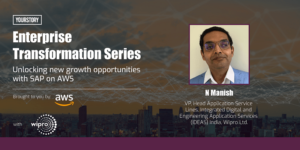Recent trends show traditional events or seminars are upgrading by leveraging new-age technologies. From projections to mapping, huge stage screens, VR, and automated bots, a wide range of cool tech is seen at the events today.
In fact, the events and experience industry was among one of the first adopters of everything cool in tech.
But ironically, most of these advancements or developments are on the hardware side. So far, there hasn’t been a significant transformation on the software part, meaning the sense and intelligence to plan events remains the same.
To give a deeper perspective, event planning is the sixth most stressful job in the world, as per the Forbes Report on 10 Most Stressful Jobs. In fact, any successful event entails 75 percent planning and 25 percent execution.
That’s where the events and experiences industry is lacking. It is because all the innovation is focused on the execution part, there is little or no focus on innovating the planning process. As a result, even today, event planners use the same old manual processes of planning, drafting, and promoting.
However, all of these can be eased by leveraging the capabilities of data analytics in the process of event planning.
Data analytics can help event organisers to track every aspect of the event. With virtual events becoming the reality in this new normal era, and the events industry is also catering hybrid events, now is the time to hit the refresh button.
The focus
The event technology needs full-stack solutions that will make event planning smooth and efficient. About 90 percent of event planners think technology can bring a positive impact in making events successful by easing basic yet stressful tasks.
It will further lift the stress off the planners and reduce time as well as money spent to put any event together. In this regard, let’s take a look at how new-age tech can change the events industry:
Benefits of new-age technologies
Events planning often culminates with a key question as to ‘what all needs to be done to meet the event objectives?’ Well, with data-driven planning exercises, event planning will no longer be guesswork.
Availability of an in-depth planning module, highlighting the smallest of the details, will help event planners understand and compare nuances, including impact comparison of various events, any glitch in the previous events, among others.
They can identify what will work best – a physical, virtual, or hybrid event. Subsequently, it will enable them to make informed decisions while planning the show.
Moreover, be it a physical event or a virtual one, location or venue plays an important role. And it sometimes becomes overwhelming to decide upon a venue. Integrating AI-powered search and AR-enabled exploration can ease the search process for planners.
Not just that, they can also compare all venue options as well as join hands with venue providers to complete the cycle of booking the venue, in no time, with just a few clicks.
Needless to say, manual tasks while event planning an event require more effort. But with the right application of technology, the same can be done efficiently. Event planners can use mobile apps because these can help them track process steps and provide an integrated view of event management.
In the end, it is also important to focus on feedback and lessons learned such as keeping a track of things that went right and things that aren’t to be repeated.
It is, therefore, no secret that the plethora of digital tools or new-age technologies can help planners efficiently execute events – from start to finish. Moreover, integrating the right technologies for each task can unlock new experiences. So, the power of event technology is indeed on its way to redefine the event planning experience, thereby helping planners offer a completely seamless and highly effective show.
(Disclaimer: The views and opinions expressed in this article are those of the author and do not necessarily reflect the views of YS.)










